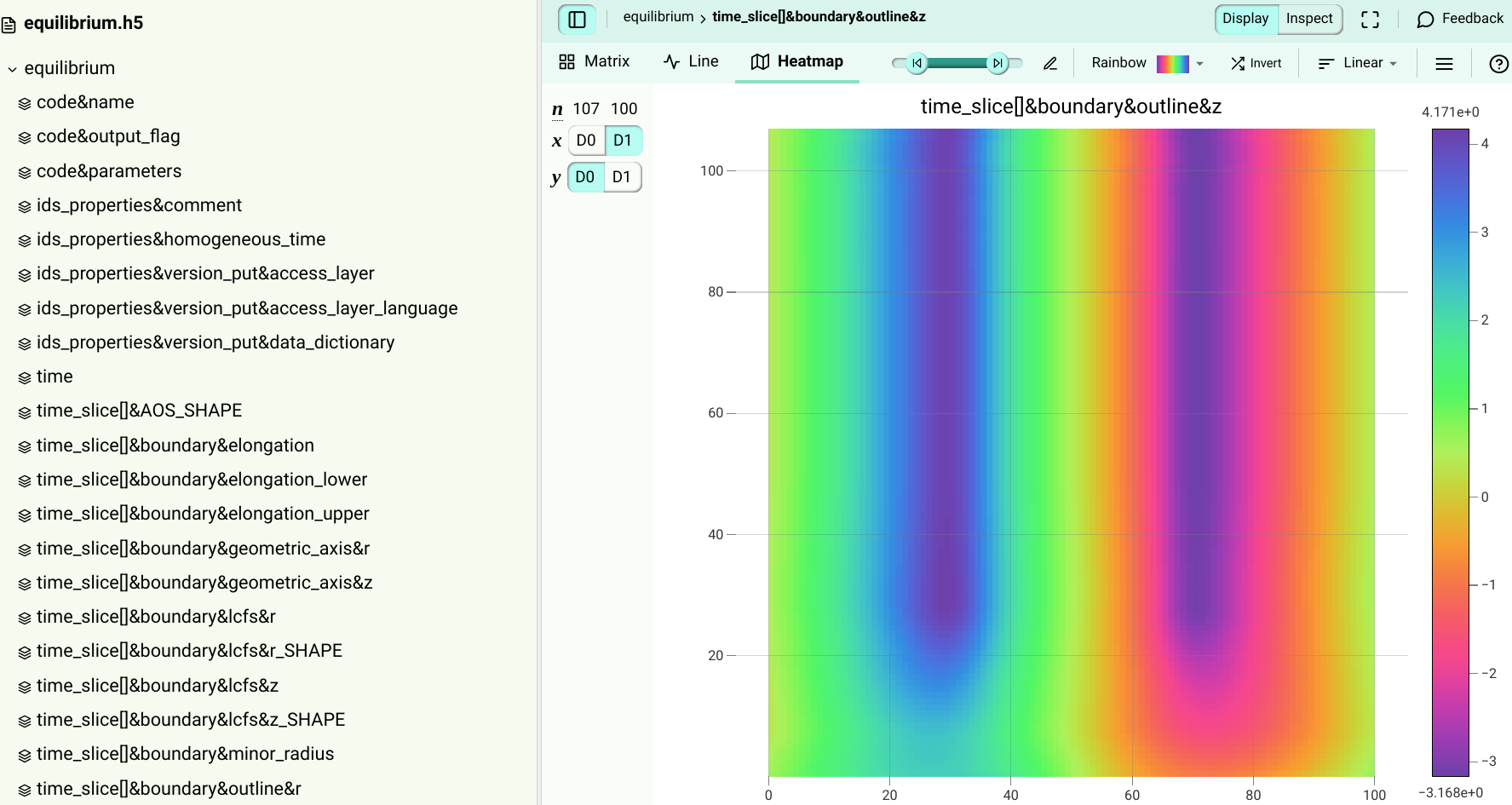
- The HDF Group
- Downloads
- Documentation
- Community Forum
- Licenses
- Help Desk
- HDF Software Priority Support
- HDF Consulting
- Archive
- Search
Got HDF5?

Curious to see what’s inside? Try this
New Features in HDF5 1.14
The new features in the HDF5 1.14 series include:
-
16 bit floating point and Complex number datatypes Support for the 16-bit floating-point _Float16 C type has been added to HDF5. On platforms where this type is available, this can enable more efficient storage of floating-point data when an application doesn’t need the precision of larger floating-point datatypes. It can also allow for improved performance when converting between 16-bit floating-point data and data of another HDF5 datatype.
-
Asynchronous I/O operations HDF5 provides asynchronous APIs for the HDF5 VOL connectors that support asynchronous HDF5 operations using the HDF5 Event Set (H5ES) API. This allows I/O to proceed in the background while the application is performing other tasks.
-
Subfiling VFD The basic idea behind sub-filing is to find the middle ground between single shared file and one file per process - thereby avoiding some of the complexity of one file per process, and minimizing the locking issues of a single shared file on a parallel file system.
-
Onion VFD There is a desire to introduce and track modifications to an HDF5 file while preserving or having access to the file as it existed prior to a particular set of modifications. To this end, this RFC proposes an Onion Virtual File Driver (VFD) as an effectively in-file revision management facility. Users will be able to open a particular revision of the file, read from and make modifications to the file, and write to file as a new revision. The name “Onion” derives from a mnemonic: the original file exists with data layered atop one another from an original file to the most recent revision
-
Multi Dataset I/O The HDF5 library allows a data access operation to access one dataset at a time, whether access is collective or independent. However, accessing multiple datasets will require the user to issue an I/O call for each dataset. This release provides a set of new routines that allow users to access multiple datasets with a single I/O call.
-
New tools h5dwalk and h5delete The new tool h5dwalk provides parallelism for improved performance while also including critical logging capabilities to capture outputs from applying the serial tools over large collections of HDF5 files.
Note that the HDF5 Release 1.14.0 is the final released version of all the features that were released in 1.13.0-1.13.3.